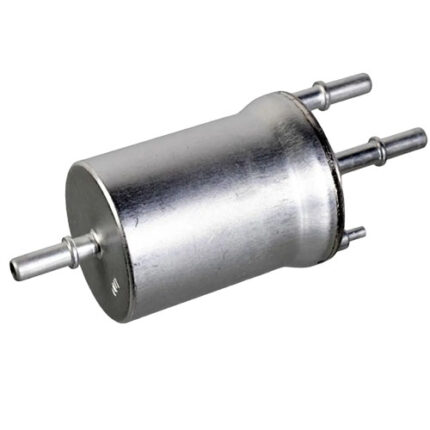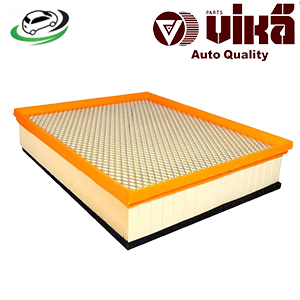-17%
Get Air Filter Sub-Assy VW Amarok 2010-2022 2H0129620C
The air filter is a critical component in a vehicle’s engine system. Its primary role is to clean the air entering the engine, ensuring that only clean air reaches the combustion chamber. This helps maintain engine performance, fuel efficiency, and longevity. Understanding the functionality, types, symptoms of failure, and maintenance of the air filter is crucial for vehicle owners and automotive technicians.
Functionality of the Air Filter
The air filter performs several vital functions in the engine system:
- Filter Air Contaminants: The primary role of the air filter is to trap dust, dirt, pollen, and other airborne contaminants that can enter the engine. By filtering these particles, the air filter prevents them from reaching the combustion chamber.
- Protect Engine Components: Clean air is essential for the efficient operation of engine components such as the fuel injectors, pistons, and valves. The air filter helps protect these parts from abrasion and wear caused by contaminants.
- Improve Engine Performance: By ensuring that only clean air reaches the engine, the air filter helps maintain optimal engine performance, including smooth acceleration and power delivery.
- Enhance Fuel Efficiency: A clean air filter ensures proper air-fuel mixture, which can improve fuel efficiency and reduce fuel consumption.
Components of an Air Filter
A typical air filter consists of the following components:
- Filter Media: The filter media is the material that captures and holds airborne contaminants. It can be made from various materials, including paper, cotton, or synthetic fibers.
- Filter Frame: The frame holds the filter media in place and provides structure to the filter. It is usually made from metal or durable plastic.
- Sealing Gasket: The gasket ensures a tight seal between the filter and the air filter housing, preventing unfiltered air from bypassing the filter.
Types of Air Filters
Air filters come in various types, each suited to different vehicle requirements and driving conditions:
- Paper Air Filters: These are the most common type, made from pleated paper that provides effective filtration. They are typically used in standard passenger vehicles and are known for their affordability and effectiveness.
- Cotton Gauze Air Filters: Made from a series of layers of cotton gauze, these filters are often used in high-performance and aftermarket applications. They are reusable and can be cleaned and re-oiled to extend their lifespan.
- Synthetic Air Filters: Synthetic filters are made from non-woven materials that offer high filtration efficiency and durability. They are often used in vehicles exposed to harsh environments.
- HEPA Air Filters: High-Efficiency Particulate Air (HEPA) filters provide superior filtration by capturing smaller particles that standard filters may miss. They are used in specific applications where enhanced filtration is required.
Symptoms of a Failing Air Filter
Recognizing the signs of a failing air filter is essential for maintaining engine performance and efficiency:
- Reduced Engine Performance: A clogged or dirty air filter can lead to reduced engine performance, including hesitation, sluggish acceleration, and decreased power.
- Decreased Fuel Efficiency: A failing air filter can disrupt the air-fuel mixture, leading to decreased fuel efficiency and increased fuel consumption.
- Engine Misfires: Insufficient airflow due to a clogged filter can cause engine misfires or rough idling.
- Check Engine Light: In some cases, a failing air filter can trigger the check engine light on the dashboard, indicating an issue with the engine or air intake system.
- Unusual Engine Sounds: Increased engine noise or a noticeable decrease in engine smoothness can be signs of a clogged air filter.
Causes of Air Filter Failure
Several factors can contribute to air filter failure:
- Accumulation of Dirt and Debris: Over time, the air filter collects dirt, dust, and other contaminants, which can clog the filter and reduce its effectiveness.
- Extended Service Intervals: Failing to replace the air filter at regular intervals can lead to clogging and reduced performance.
- Driving Conditions: Frequent driving in dusty or dirty environments can accelerate the buildup of contaminants in the air filter.
- Improper Installation: Incorrect installation of the air filter or using the wrong filter type can lead to reduced filtration efficiency and potential engine issues.
Maintenance and Replacement
Proper maintenance of the air filter involves regular inspections and timely replacements to ensure optimal engine performance:
- Regular Inspections: Periodically check the air filter for signs of dirt accumulation or clogging. This can be done during routine vehicle maintenance or when performing other engine-related tasks.
- Follow Manufacturer’s Recommendations: Adhere to the manufacturer’s recommended replacement intervals for the air filter. This information can be found in the vehicle’s owner’s manual.
- Replace as Needed: If any symptoms of a failing air filter are observed, or if the filter is due for replacement based on mileage, replace it promptly to maintain engine performance and fuel efficiency.
Replacement Process
Replacing an air filter typically involves the following steps:
- Prepare the Vehicle: Ensure the engine is off and the vehicle is on a level surface. Open the hood and locate the air filter housing.
- Remove the Old Filter: Open the air filter housing by removing any clips or screws. Carefully remove the old air filter and check for any debris inside the housing.
- Install the New Filter: Position the new air filter in the housing, ensuring it is properly aligned. Close the housing and secure it with the clips or screws.
- Check for Proper Seal: Ensure that the air filter housing is properly sealed to prevent unfiltered air from bypassing the filter.
- Test the Vehicle: Start the vehicle and check for any changes in engine performance or unusual sounds. Ensure the engine runs smoothly and efficiently.
Importance of Quality Air Filters
Using high-quality air filters is essential for several reasons:
- Performance: Quality filters ensure effective removal of contaminants, contributing to optimal engine performance and smooth operation.
- Durability: High-quality materials and construction enhance the filter’s longevity, reducing the need for frequent replacements.
- Reliability: Reliable filters provide consistent filtration, preventing potential engine damage and performance issues.
- Cost-Effectiveness: Investing in a quality air filter can prevent costly repairs and maintain overall vehicle efficiency.
Follow us on Facebook for more parts.



